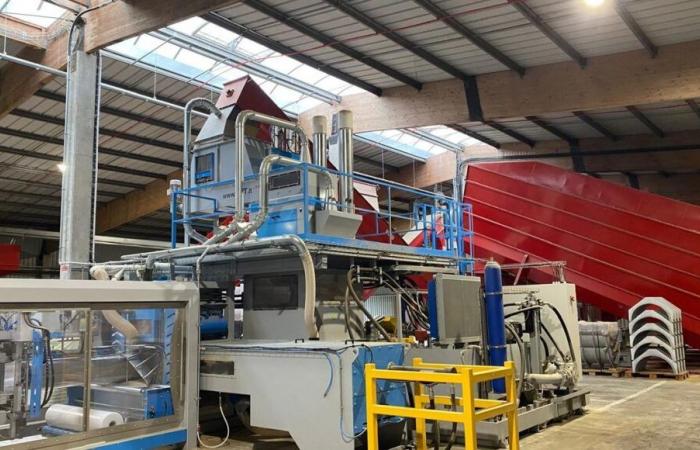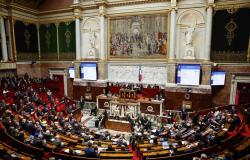In the huge hangar, the 2,500 tonnes of straw are ready to go through the processing machine. In the maze of red pipes, the straw bales are automatically unraveled, cleaned and compressed. Half an hour later, 15 kilo bales leave the production unit, ready to use for building insulation.
Rafael Benabdelmoumene
The Brin d'Or factory cost 6 million euros and employs three people. Objective ultimately produce 10,000 tonnes of chopped straw. This is only the first year of production, but several buildings are already insulated using the natural material. “There is a construction site that is well known here in Poitiers, it is the CROUS Champlain, the university restaurant which has been rehabilitated, renovated, insulated from the outside, with chopped straw. We have the Mignaloux-Beauvoir school , the offices of the Merlot company… And the ceilings of the workshops of the Comédie-Française in Sarcelles which are insulated with chopped straw”details Nicolas Rabot, the general director of Iélo, the company which markets the straw.
“Added value” for farmers
At the other end of the chain, it is the Tricherie cooperative which initiated the project. Around forty farmers already sell their straw to the company. While the anger of farmers who are struggling to make a living from their production is expressed throughout France, the Brin d'Or project presents itself as a alternative to cereal growers in search of diversification of their sources of income.
The objective “it is to ensure a additional income and additional added value for our farmers“, explains Thibaud Deschamps, the president of the board of directors of the Tricherie cooperative. “As a cereal grower, I have no value for straw and I sell it abroad or over a long distance. So I'm rather proud to know that we have a local project to recycle straw on a scale of around thirty kilometers around the site and that the buildings and projects which will use this straw will also remain within a restricted perimeter”rejoices the farmer.
France 2030
For the innovative nature of this project, the company received the plaque **” from the hands of the sub-prefect of Châtellerault on November 21France 2030″ in the “sustainable city and innovative housing” category. The key is a financial aid to allow the cooperative to continue to grow.

Rafael Benabdelmoumene
“This subsidy of 1.5 million euros from the State will also allow them to develop and develop research. And then perhaps also find other uses than insulation for buildings”declared the sub-prefect.
The company is already thinking about producing mulch or animal bedding from straw. But the main objective remains toopen other production chains like that of Bonneuil-Matours almost everywhere in France to provide 10% of the market for biosourced insulating materials by 2030.








